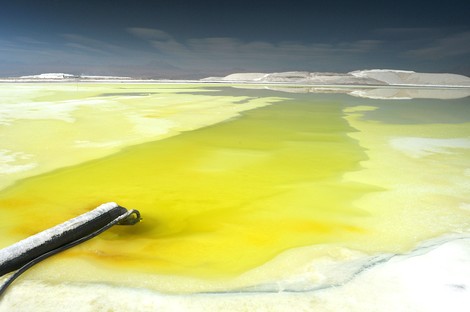Your podcast discovery platform
Curious minds select the most fascinating podcasts from around the world. Discover hand-piqd audio recommendations on your favorite topics.

piqer for: Climate and Environment Global finds Globalization and politics
I'm a freelance journalist, currently based in Madrid. I used to be a News Producer at CNBC in London before, but I thought a little bit more sun might do me good. Now I write for several news organizations, covering a range of topics, from Spanish politics and human rights for Deutsche Welle to climate change for La Marea.
These Are The Metal Bricks To Build The Renewable Revolution
Journalists and environmentalists often talk about the widespread implementation of renewables as if it was something that could be achieved just by political will. It feels, at times, as if these systems could summon energy out of thin air, without any physical support. Nothing could be further from the truth.
In this new Q&A explainer by Carbon Brief (a few examples of which I have already reviewed here), author Jocelyn Timperley lists the very bricks that should build this revolution: The metals to build batteries, photovoltaic film, magnets and wiring.
The author asks six questions, including about the metals' origins and whether shortage would hold up decarbonization. She also touches on the delicate question of extraction, a very common headache for environmentalists and administrators.
The article focuses on five metals (lithium, cobalt, nickel, manganese and copper) and the 17 elements known as rare earth elements. The starting point is an expected rise in the demand for these materials, as low carbon technologies will be deployed en masse in the next few years and decades. Of course, it's worth keeping in mind that these are used in all sorts of electronic devices, and not just in renewables.
“It would be reasonable to expect that all low-carbon energy systems are more likely than not to be more metal intensive than high-carbon systems. In fact, all literature examining material and metals implications for supplying clean technologies agree strongly that building these technologies will result in considerably more material-intensive demand than would traditional fossil fuel mechanisms.”
As usual with Carbon Brief stories, the article is extremely well researched and includes numerous links for further reading. And, hooray, it's not too depressing!
